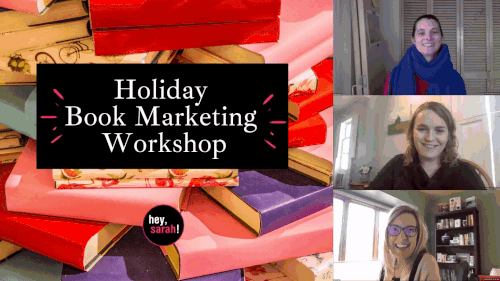Manage Your Day-to-Day: Build Your Routine, Find Your Focus & Sharpen Your Creative Mind
I chose this cute little number for my first book review of 2021 because it’s one of my favorites. It’s been on my shelf for a few years, and I pick it up at least a few times per year to flip through it and get inspired. I’m focusing on habit-building and routine in these early days of the new year, so this book was a natural fit.
The book is made up of vignettes by experts in several categories: Building a Rock-solid Routine, Finding Focus in a Distracted World, Taming Your Tools, and Sharpening Your Creative Mind. It’s edited by Jocelyn K. Glei, and put together by 99U, which is a conference, and an offshoot of the Behance platform for creative pros’ portfolios.
Who It’s For: Creative types with full-time jobs who want to figure out how to create something amazing while juggling day-to-day responsibilities.
You’ll Love It If: You like inspirational messages and a general, motivating you-can-do-it-if-you-just-stick-to-it world view.
It’s Probably Not for You If: You like to get really deep into the science behind theories of productivity, OR you’re not into trying new things.
What I got out of this book:
The main thing I got out of this book is that even though there are a ton of tactics for how to best schedule your day, the general strategy that most scholars of efficiency and productivity recommend is to, perhaps over-simply stated, take ownership over your schedule and routine. Sounds obvious and easy, and in some ways it is, but for moms or employees or children or spouses or people who have commitments in the world—it can be a big challenge to take the reins and make uncomfortable adjustments or additions to an already-packed schedule.
The different tactics for taking the reins are really interested to flip through. For example, Tony Schwartz starts off his section with the parable of Zeke, a guy who was miserable and going nowhere, but who made some small changes—scheduling a walk on his lunch hour, plus getting more sleep at night, adding in some meaningful social interactions, plus an hour of concentrating on his most important tasks first thing in the morning. We are all Zeke!
Aaron Dingman’s section concentrates more on specific organizational hacks for our email inboxes to make us more efficient. Christian Janett asks us to banish the word multitasking from our vocabulary, and Lori Deschene challenges us to use social media more mindfully, providing a series of questions we can use to self-evaluate our state of mind before posting.
Later in the book, in the Sharpening Your Creative Mind section, Scott McDowell shares about fun little tricks that successful writers have tried to spur their creativity, like word association or that time that George Harrison wrote “My Guitar Gently Weeps” during a creativity exercise in which he randomly flipped open a book and picked out a phrase.
What I think my author clients will get out of this book:
Your creativity needs you to be its midwife and help wrench it into the world. This goes for the books that my clients have already written, but it also applies to all the social media posts and marketing campaigns that can pop up to support the book and get it into the hands of readers. Social media allows for endless creativity, and when an author builds a routine around connecting with readers, the sky is the limit.
My favorite part of this book is the format. You can keep it on your shelf and pick it up to get a new idea or fresh inspiration at any time. Everyone needs that little burst of motivation once in a while, and this book provides it.










